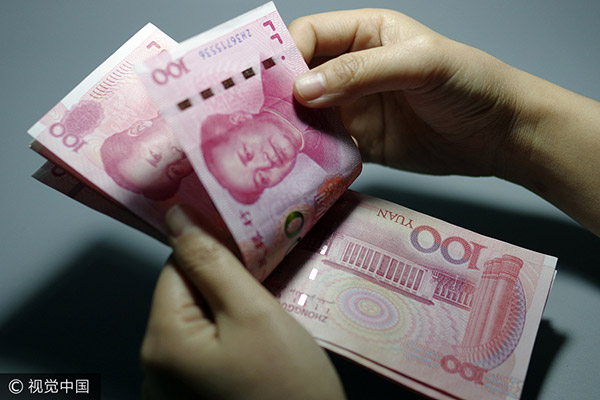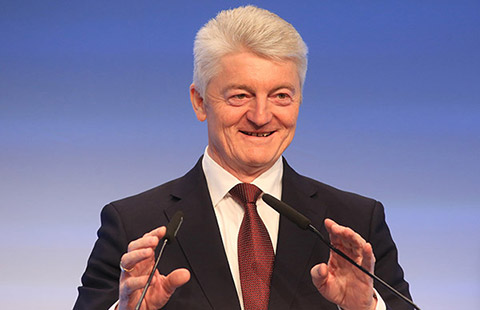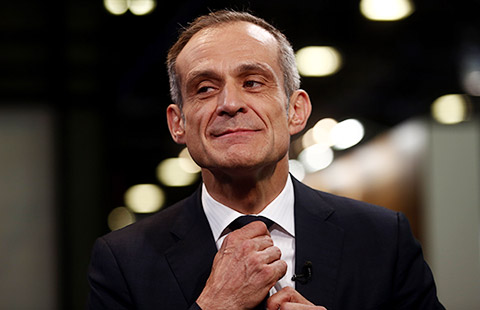Top economist sees robust yuan
 |
|
An employee counts yuan banknotes. [Photo/VCG] |
PBOC expert says sharp depreciation not on the cards
The yuan will not suffer a sharp depreciation in the coming one or two years and its internationalization remains an "irreversible trend", leading economist and former central bank advisor Li Daokui said on Tuesday.
Li said possible uncertainties caused in the United States by the Trump administration, in the worst case scenario, might cause large fluctuations in the US financial markets. These, he said, could push up the value of the dollar and cause a big-margin depreciation of the yuan against the greenback.
"But the possibility of that happening is slim," said Li Daokui, head of the Schwarzman College at Tsinghua University. Li served on the Monetary Policy Committee of the People's Bank of China for two years until March 2012.
"The yuan, therefore, will not experience major fluctuations in the coming one or two years," Li added, unless there are significant political changes in the US, which would cause great repercussions in the nation's financial markets.
Li's views were echoed by those of Eswar Prasad, a professor of trade policy at Cornell University in the US.
"I don't see much space for a fluctuation of the yuan," he told a panel discussion at the Annual Meeting of the New Champions 2017, also known as the Summer Davos.
The Chinese economy may start to bottom out next year thanks to an expected rise in private investment, Li said.
"China is coming to a turning point of growth," Li said.
China achieved a 6.9 percent GDP growth in the first quarter year-on-year, beating market expectations. Analysts are generally optimistic that the country will meet its growth target of at least 6.5 percent for this year.
But the country's recent risk-control-oriented financial tightening, including stricter management of overseas investment by Chinese investors, has triggered market concerns that China may slow its financial opening-up and the pace of yuan internationalization may suffer setbacks.
Li shrugged off such concerns and said the effect of the recent financial policies on the yuan internationalization process was only temporary. China remained the largest producer of various commodities and it continued to have trade surpluses and large amounts of savings.
Meanwhile, China is still growing at quite a fast pace. Future cross-border trade and financial transactions and exchanges between China and the rest of the world meant that "yuan internationalization will be an irreversible trend", he said.
Li also expected China to further expand its financial opening-up and soon allow foreign financial institutions, such as investment banks, to gain more room for development in China.
The three-day Summer Davos forum, hosted annually by the cities of Dalian and Tianjin on a rotating basis, attracts over 2,000 participants from politics, business, civil society, academia and the arts circles.

























